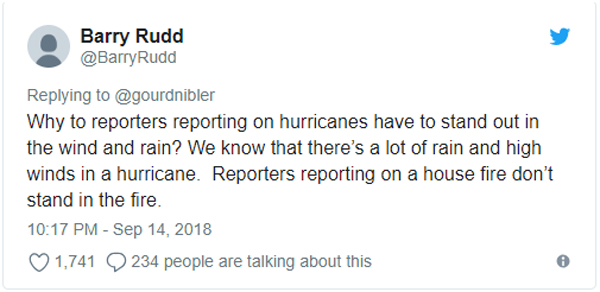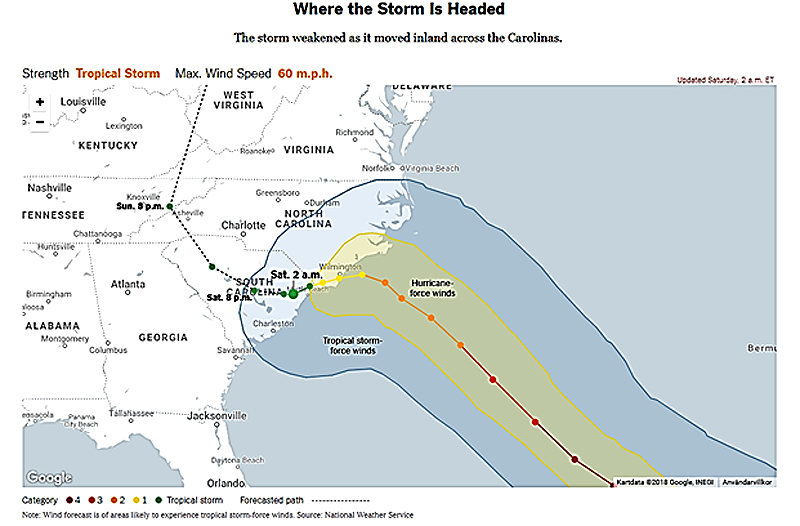
Det började som en orkan, kategori 4 ute
på Atlanten. Träffade kusten som en orkan, kategori 1 och in över land
som en tropisk storm. Men ändå ett bedrövligt oväder med mycket regn.
Det man aldrig får veta i media är att
orkaner och stormar har varit ett ständigt gissel för människor i östra
USA. Trots detta vill folk gärna bo vid kusten och allt fler flyttar dit
och därför blir de ekonomiska skadorna större. Och de ekonomiska
skadorna väntas bli ännu större i framtiden.
https://www.cnsnews.com/news/article/susan-jones/major-us-hurricane-drought-ends-after-record-4323-days
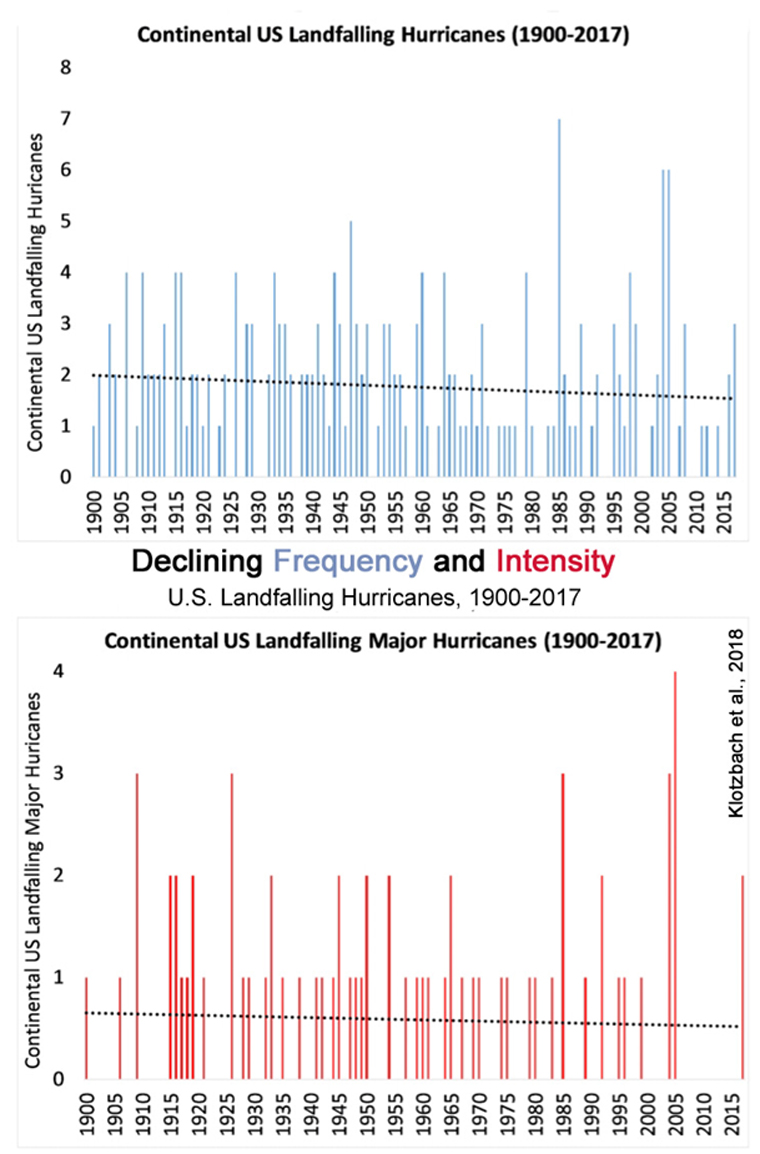
Källa:https://journals.ametsoc.org/doi/10.1175/BAMS-D-17-0184.1
AmericanMeteorologicalSociety
Utdrag tidskriftens abstract:
Abstract
Continental United States (CONUS) hurricane-related inflation-adjusted
damage has increased significantly since 1900.
However, since 1900 neither
observed CONUS landfalling hurricane frequency nor intensity shows
significant trends, including the devastating 2017 season.
Growth in coastal population and regional wealth are the overwhelming
drivers of observed increases in hurricane-related damage.
As the population and wealth of the United States has increased in
coastal locations, it has invariably led to the growth in exposure and
vulnerability of coastal property along the U.S. Gulf and East Coasts.
Unfortunately, the risks associated with more people and vulnerable
exposure came to fruition in Texas and Florida during the 2017 season
following the landfalls of Hurricanes Harvey and Irma. Total economic
damage from those two storms exceeded $125 billion.
Growth in coastal population and
exposure is likely to continue in the future, and when hurricane
landfalls do occur, this will likely lead to greater damage costs than
previously seen. Such a statement is made recognizing that the vast
scope of damage from hurricanes often highlights the effectiveness (or
lack thereof) of building codes, flood maps, infrastructure, and
insurance in at-risk communities.
Folk är inte så rädda för orkaner som
man skulle kunna tro, häftigare att bo vid kusten.
Via media får vi de häftigaste bilderna
från en översvämning, kanske inte alltid de mest representativa. Detta
avslöjande sprids just nu på olika sociala medier. Bilden visar hur
journalister kan bättra på verkligheten.
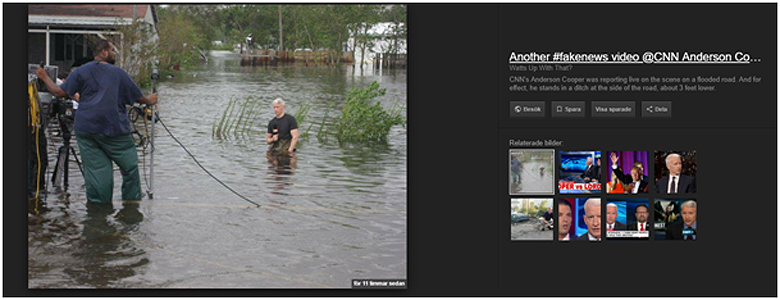
Besöker du sidan ser du en bild till
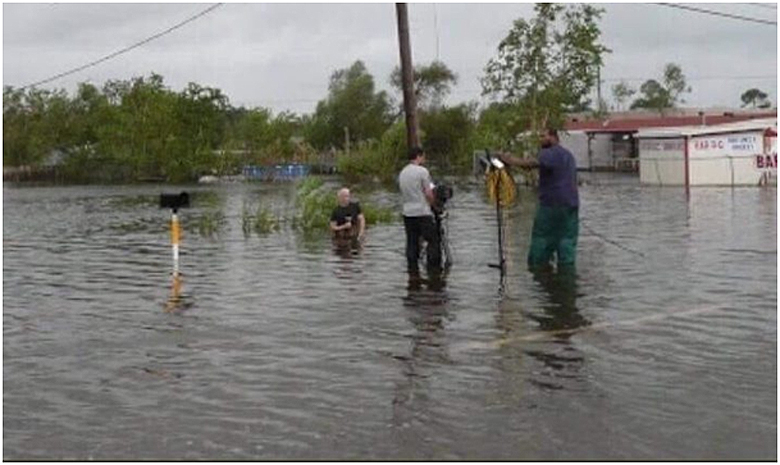
Är det inte tillräckligt eländigt ändå?
Denne journalist är en kändis på CNN. Anderson Cooper!

Följande video är rolig?

Vad
svarade då TV-kanalen på kritiken?
In a statement to BuzzFeed News, the Weather Channel defended Seidel’s
coverage, saying that he was standing on wet grass and was “undoubtedly
exhausted.”
“It’s important to note that the two individuals in the background are
walking on concrete, and Mike Seidel is trying to maintain his footing
on wet grass, after reporting on-air until 1:00 a.m. ET this morning and
is undoubtedly exhausted,” the network said.
https://www.buzzfeednews.com/article/tanyachen/people-are-cracking-up-at-this-weather-reporter-being
